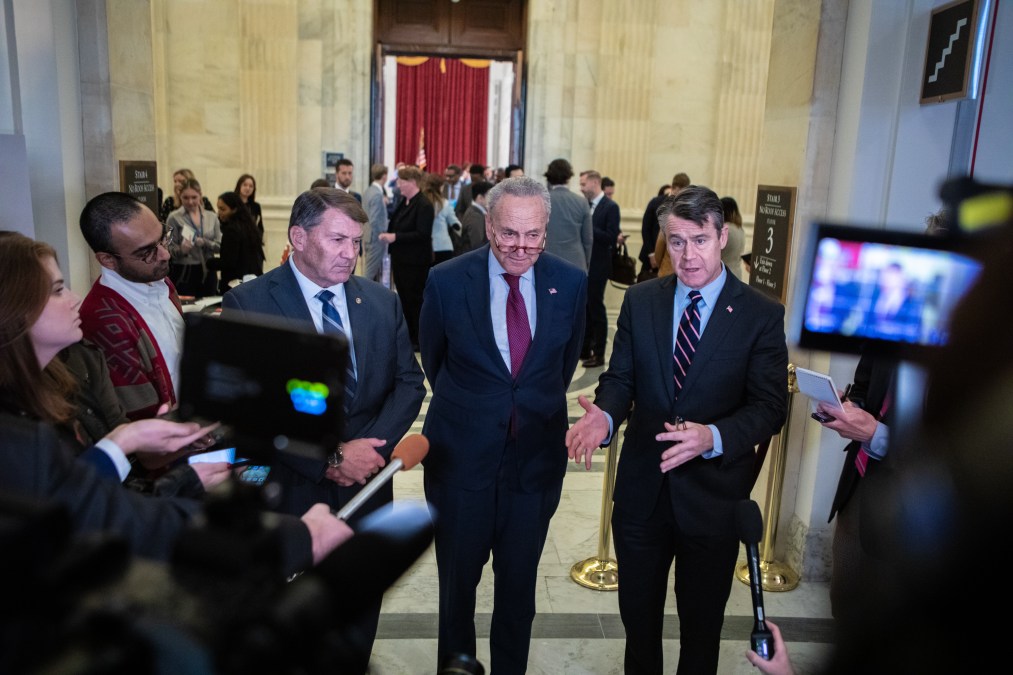With AI development, Schumer says U.S. needs to hold competitive edge on China for national security

Staying competitive with the Chinese government has to be a consideration for the U.S. as it advances artificial intelligence as part of its national security efforts, Senate Majority Leader Chuck Schumer said Wednesday.
After his last closed-door, bipartisan AI insight forum, the New York Democrat said in a press conference that China is the only country that “would compete with the U.S.” on AI. Schumer’s forum, which covered national security specifically, followed an earlier session Wednesday about “Doomsday Scenarios,” per an email sent to reporters.
The White House’s long-awaited AI executive order calls on the Department of Defense and all non-DOD federal agencies to play a part in protecting national security in the race to innovate.
“U.S. leadership on AI gives us a competitive advantage that can greatly benefit the deployment of AI to strengthen our national security,” Schumer said. “AI and national security are very important together. … In order to maintain U.S. leadership in AI, we must provide robust investments to grow the AI industry, including more funding for research, development and procurement of AI technologies.”
Sen. Mike Rounds, R-S.D., pointed to the Department of Energy to share how non-DOD agencies are able to play a role in national security, highlighting the DOE’s work on nuclear weapons systems “in terms of creation.”
“When you’re talking about AI, they have real capabilities at our laboratories that can be utilized for our defensive purposes as well,” Rounds said. “There is a coordination between” DOE and the DOD.
Sen. Todd Young, R-Ind., meanwhile, said that Biden administration policies on digital trade deals with other countries are inhibiting the development of models of “green, next-generation technology,” as well as the ability to interoperate with partners and allies, which could “undermine national security.”
“Once we operate domestically,” Young said, “we’re gonna have to empower our diplomats … to sit down with other diplomats and the leaders of AI companies in the Western world so that we can harmonize regulations across other countries.”
Jack Shanahan, an adjunct senior fellow at the Center for a New American Security Technology and retired Air Force lieutenant general who spoke at the forum, said in an interview with FedScoop that there is an opportunity for federal agencies to have a stake in protecting national security via their AI use.
With agencies like the Department of Commerce playing a “massively important role” at the center of the AI space, Shanahan said that the AI executive order “is the way to coalesce the federal government around such an important topic.”
Non-DOD agencies are “going to have to get moving,” Shanahan said. “What I’d like to see and hope is going to be the case, they can learn from DOD, they can learn from maybe some of the intel agencies, they can learn from places like the U.S. digital service, but they’re also going to have things that are unique to their organization.”






